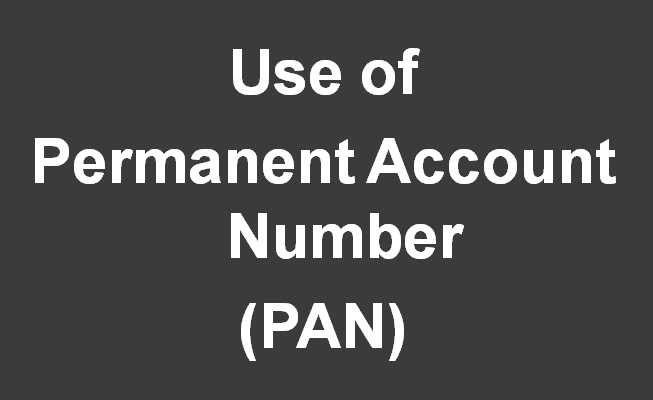1. What is PAN
PAN is short form of “Permanent Account Number” . It is a 10 digit alpha-numeric unique number allotted by Indian Income Tax Department. It is issued in the form of a laminated card.
The PAN is unique, national, and permanent. It is unaffected by a change of address, even between states.
1a. PAN Structure
PAN structure is as follows: ABCPG9999K:
First five characters are letters, next 4 numerals, last character letter
- First 3 characters – are running series – AAA to ZZZ
- Fourth character – depends on catergory og PAN owner
- C — Company
- P — Person
- H — HUF(Hindu Undivided Family)
- F — Firm
- A — Association of Persons (AOP)
- T — AOP (Trust)
- B — Body of Individuals (BOI)
- L — Local Authority
- J — Artificial Juridical Person
- G — Govt
- Fifth character – Surname initial . for e.g G for Gupta
- 6th – 9th character – running series
- 10th character – checksum
2. Why PAN is required
PAN was initially introduced to facilitates linking of various documents related to a particular person – like tax payments, TDS credits, tax demands, arrears. Is is also used to facilitate easy retrieval & matching of information related to investments, loans and other financial activities for detecting & combating tax evasion.
Now, PAN is almost mandatory for financial transactions such as opening a bank account, receiving taxable salary or professional fees, sale or purchase of assets above specified limits.
It is also being used as a valid ID Proof.
3. PAN number to be quoted mandatory
It is mandatory to quote PAN on return of income, all correspondence with any income tax authority. . It is also compulsory to quote PAN in all documents pertaining to the following financial transactions :-
- (a) sale or purchase of any immovable property valued at five lakh rupees or more;
- (b) sale or purchase of a motor vehicle or vehicle, (not two wheeled vehicles)
- (c) a time deposit, exceeding Rs 50000, with a banking company ;
- (d) a deposit, exceeding Rs 50000 , in any account with Post Office Savings Bank;
- (e) a contract of a value exceeding Rs 1 lac for sale or purchase of securities;
- (f) opening a bank account;
- (g) making an application for installation of a telephone connection (including a cellular telephone connection);
- (h) payment to hotels and restaurants against their bills for an amount exceeding
- Rs 25000 at any one time ;
- (i) payment in cash for purchase of bank drafts/ pay orders / banker’s cheques for
- an amount aggregating Rs 5000 or more during any one day;
- (j) deposit in cash aggregating Rs 50000 or more with a bank during any one day;
- (k) payment in cash in connection with travel to any foreign country of an amount exceeding Rs 25000 at any one time.
4. Who should apply for PAN
- All taxpayers or persons who are required to submit income tax return must obtain PAN.
- Any person carrying on any business or profession whose total sales, turnover or gross receipts are or is likely to exceed Rs 5 lacs in any previous year;
- Any person, who intends to enter into financial transaction where quoting PAN is mandatory, must also obtain PAN. (See Point 3)
Anyone can apply for a PAN Card. There is no eligibility criteria to apply for a PAN card. You need not have an income, or be a taxpayer to be eligible to submit an application for PAN card. There is no restriction by age. ( See my other post on: How to Apply for a PAN Card)
5. Exceptions to PAN Requirements
While the PAN is asked for in almost all financial transactions, it is possible to conduct some transactions without it if you provide Form 60 or Form 61 (for agriculturists). A declaration in Form 60 will have to be issued to the registering authority for purchase and sale of immovable property or motor vehicles, or to the bank, broker, telephone provider, hotel or travel agent wherever necessary.
6. Consequenses of not having PAN
If you donot have PAN, you might face difficulties in entering transactions mentioned in Point 3 above. Banks may deduct higher TDS on your Interest Income, if you have not furnished PAN. As a employee or service provider, you should have PAN, so that TDS deducted by employer can be deposited under your PAN Account.
7. Other Important Notes
Obtaining or possessing more than one PAN is against the law, for which penalty of Rs.10,000/- may be imposed.
Feel free to post your comments & queries related to this article.
In my next post, I will write about :
- How to Apply for PAN, Check PAN Card Status
- Reprint of PAN , Lost PAN Card
- Change in PAN Details
- PAN Card for NRI

